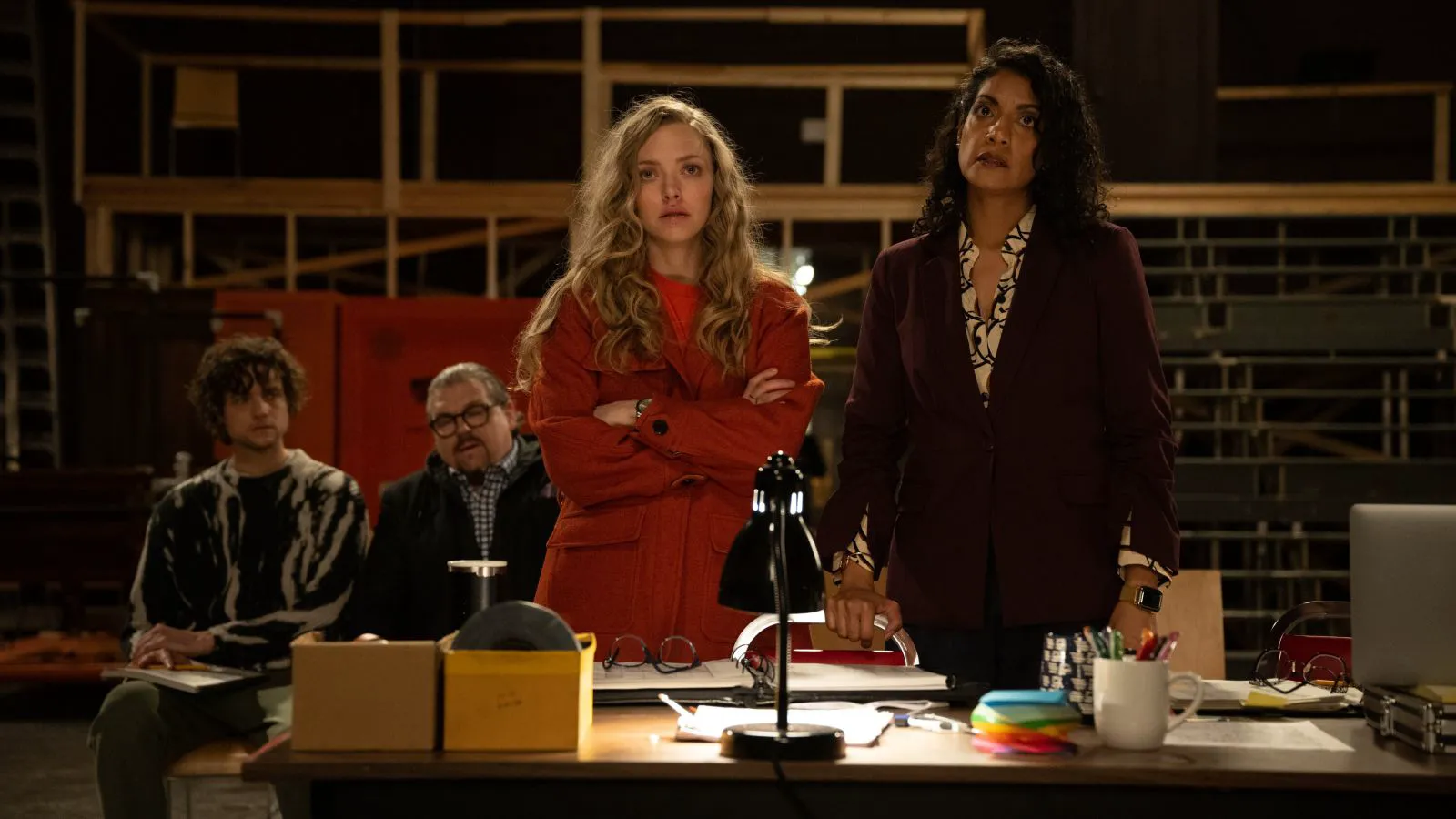Seven Veils

Plot
Jeanine, an up-and-coming theatre director, stood at the threshold of a new chapter in her professional career. She had been entrusted with the responsibility of reimagining her former mentor's magnum opus, the infamous opera Salome. Despite her own hesitations, Jeanine threw herself into the project, driven by a deep-seated passion for the art form and a lingering sense of loyalty to her mentor's legacy. Yet, beneath her enthusiasm, a cauldron of unresolved memories and emotions churned, threatening to shatter the fragile facade of her composure. As she delved deeper into the opera, Jeanine's thoughts began to wander back to the troubled past, which had led her to abandon the opera world in the first place. The memories of that fateful night, when her mentor's artistic hubris had collided with the dark realities of human nature, still lingered in her mind like an open wound. The recollection of the blood-soaked sets, the anguished wails of the Salome chorus, and the cold, calculating gaze of the titular character herself now seemed to seep into every aspect of her life, coloring her perceptions and distorting her vision. Salome, the biblical story of a young woman's unyielding desire for a man she cannot have, had long been a source of fascination for Jeanine. In her youth, she had been captivated by the opera's themes of power, desire, and the blurring of moral boundaries. However, as her involvement with the project grew, she began to see parallels between Salome's unyielding pursuit of pleasure and her own desperate attempt to reconnect with the world of opera. Jeanine's decision to reenter the opera world, after so many years away, had not been taken lightly. The memories of her past trauma had left an indelible mark on her psyche, and the prospect of reliving those same emotions through the opera was both an exhilarating and terrifying prospect. Her mentor's original production had been notorious for its graphic and disturbing elements, and Jeansine knew that she needed to tread a delicate balance between artistic expression and the boundaries of good taste. As rehearsals began, Jeanine found herself struggling to maintain her emotional distance from the characters and their stories. The Salome of her mentor's opera was a monster, a seductress who had no qualms about manipulating others to get what she wanted. Yet, as she delved deeper into the role, Jeansine began to see Salome's actions as a twisted manifestation of the dark desires that lurked within all of us. Her own past traumas seemed to echo through the opera, casting an unholy glow over the proceedings. The cast, comprised of seasoned opera singers and up-and-coming talent, was both intrigued and intimidated by Jeansine's vision for the production. They admired her passion and conviction, yet were troubled by the eerie parallels between the opera and her own personal demons. As rehearsals progressed, tensions between the actors began to rise, and Jeansine struggled to hold her team together. Despite these internal conflicts, Jeansine remained resolute in her determination to bring Salome to life in all its haunting and disturbing glory. The opera, with its eerie and atmospheric score, had always held a strange allure for her, and she was determined to tap into that same sense of unease and uncertainty that her mentor's original production had once inspired. However, as Jeansine's world began to spiral out of control, she found herself confronting the darkest aspects of her own psyche. The opera was no longer just a series of performances; it had become a metaphor for the very nature of human existence. Salome, the opera's central figure, had always been a cipher for the unknown, a symbol of the unspeakable desires that lurked beneath the surface of human consciousness. As Jeansine reached the climax of her production, the boundaries between reality and fantasy began to blur. The characters, the music, and the sets all seemed to merge into a single, nightmarish vision that threatened to consume her. In the midst of the chaos, Jeansine realized that Salome was not just an opera – it was a reflection of her own fractured psyche, a manifestation of the dark desires and painful memories that she had long sought to keep hidden. In the end, Jeansine's production of Salome was a bold, if unorthodox, interpretation of the original opera. The performances were raw and unflinching, the sets and costumes imbued with an unsettling sense of unease. It was a production that defied convention, one that probed the very limits of human tolerance and pushed the audience to confront the darkest corners of their own imagination. For Jeansine, the experience of creating Salome was a journey of self-discovery, a cathartic release of the pent-up emotions and repressed memories that had haunted her for so long. As she took her final bow, the darkness of the opera seemed to recede, replaced by a glimmer of hope and renewal. Jeansine had faced her demons, and in doing so, had found a new sense of purpose and direction in her life and her art. The Seven Veils of Salome had parted, revealing a glimmer of light at the end of the tunnel – a promise of redemption, and a new beginning.
Reviews
Harmony
#FNC# While ostensibly a grand personification of the protagonist's core psychological trauma, she consistently feels like an utterly objectified entity. During the post-screening Q&A, Egoyan mentioned his intention to create a situation where no one is on the protagonist's side, which seems to address some of the questions. However, the film as a whole still feels too much like an adjunct to a stage drama. It's evident that Egoyan invested most of his effort in designing the stage performance, to the extent that the B-stories feel fragmented, especially given the main storyline's reliance on his familiar trifecta of trauma memory, stage performance, and media influence. Overall, it seems a bit rushed.
Josiah
- a potent method to be swept away and consumed by the magic of the narrative.
Sadie
#ICA Long Review - Victim and Manipulator. The film presents a woman's journey to confront her childhood trauma and tangled emotions by juxtaposing her real-life experiences with the rehearsal and performance of the opera Salome. The trauma may involve molestation by her father, creating a powerful parallel with the drama. Her attitude towards Charles and her father is incredibly complex, displaying both dependence and resistance. On one hand, she feels anger towards the director who betrayed her and the invited male lead. On the other hand, the former director's use of her father's story in the production intensifies her trauma. She is both a victim and a manipulator.
Ella
Thanks to the HKiff's buy-one-get-one-free deal, watching this film felt like experiencing an opera as well. (Spoiler alert) Salome is destined to orchestrate John's death because her father inflicted abuse, and her mother remained weak. Only through the death of her lover can she ensure he will never change. The husband claims that the female director's love is a facade , suggesting that the director is only genuine when supporting the understudy actor. Power turns love bitter, and death is even colder than love.
Recommendations





